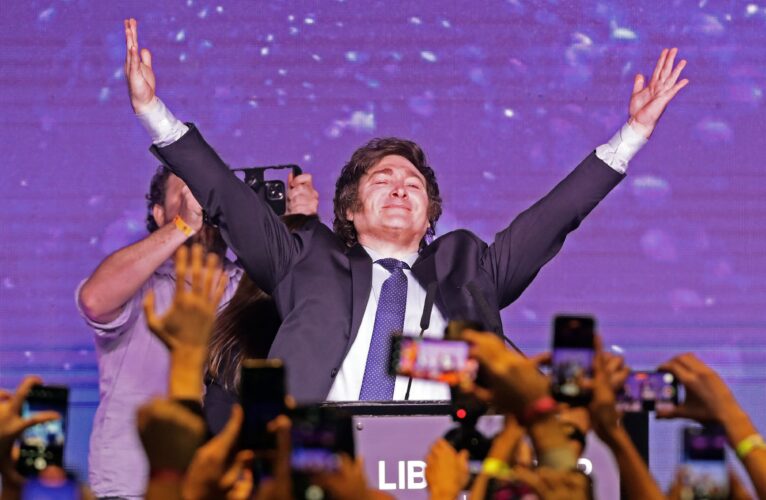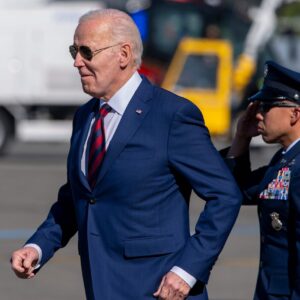Javier Milei, a political outsider who ran on a radically libertarian platform, was elected President of Argentina Sunday, defeating establishment Economic Minister Sergio Massa.
According to early reporting, Massa conceded to Milei in a post-election speech. Massa was in office under Alberto Fernandez during the worst economic crisis in the country’s recent history.
Milei’s victory over Massa represents not only a defeat of the left but of the entire Argentinian political establishment. Fernandez belongs to the “Justicialist Party,” which is part of the dominant “Peronist” political faction that has pursued a governance model of high welfare spending since the days of Juan and Eva Peron. Massa is a leader of the center-left “Frente de Todos” Party, which is part of the Peronist electoral coalition “Union for the Homeland.”
By contrast, Milei has promised to take a “chainsaw” to the country’s economic status quo. Milei aims to radically overhaul the political system to combat its nearly 150 percent inflation rate through a series of libertarian reforms including “dollarization” where Argentina will jettison its peso and enter a period of austerity backed by the US dollar to improve its finances. Milei also opposes abortion, climate change policies, and gender ideology.
BREAKING: Javier Milei has been elected President of Argentina. https://t.co/UdtA4xwRJw
— Valuetainment Media (@ValuetainmentTV) November 19, 2023
FINALLY FOUND THIS IN HIGHER RESOLUTION. https://t.co/8GXrQ9DwfJ pic.twitter.com/xaGiXcPUGC
— INVESTMENT HULK (@INVESTMENTSHULK) November 19, 2023
Learn the benefits of becoming a Valuetainment Member and subscribe today!
Milei is inheriting many problems, such as a bankrupted government and central bank, a $44 billion debt program with the International Monetary Fund (IMF), and a labyrinth of capital controls. Argentina is unable to access foreign debt markets at the moment due to the severity of its currency solvency crisis, so Milei has a long road to traverse before the economy is up and running again. Furthermore, the new Argentinian administration is set to upset global trade, as Milei has stated his intent to refuse trade with “communists” such as China and Brazil while pursuing a self-consciously pro-American agenda.
As Valuetainment previously reported, Milei and Massa reached a stalemate on Oct. 22 due to center-right candidate Patricia Bullrich splitting the vote. At the time, Massa was in the lead with 36.7 percent of the vote, compared to Milei’s 30 percent. As Argentine law demands a candidate to receive at least 45 percent of the vote, a runoff election was declared between Massa and Milei to see who would win the majority of Bullrich’s supporters.
Watch Patrick Bet-David analyze the history of Argentina’s economic woes below, or read a text version of the analysis here.


















Add comment